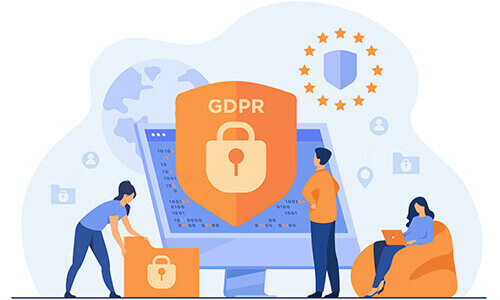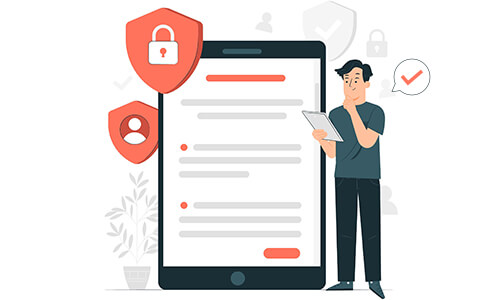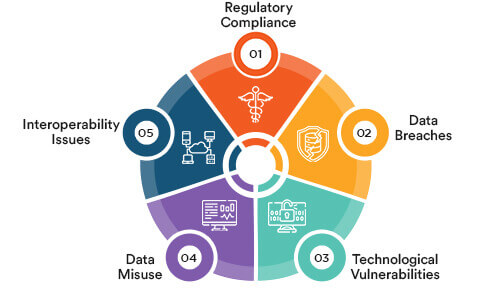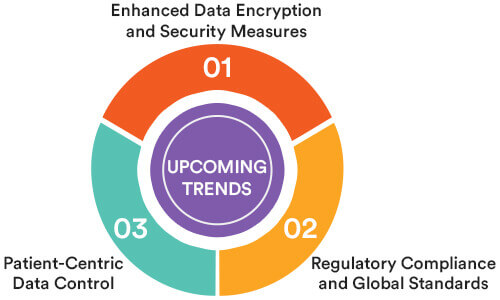Healthcare data privacy is more complex and vital than ever before. As healthcare systems increasingly rely on digital technologies, safeguarding patient information while embracing innovation has become a delicate balancing act. The rapid adoption of advanced technologies like artificial intelligence (AI), big data analytics, and telehealth solutions have revolutionized healthcare, offering unprecedented opportunities for improving patient outcomes. However, these advancements also introduce new risks and challenges related to patient data privacy system integration in healthcare and security. We will explore the evolving dynamics of healthcare data privacy systems, highlighting emerging threats, the role of technology, patient-centric approaches, and the ongoing challenges.
Evolving Data Privacy in Healthcare

Data privacy in healthcare has undergone significant transformation in recent years, driven by both technological advancements and regulatory changes. The traditional approach to healthcare data management, which focuses on securing physical records and ensuring confidentiality, has evolved into a more dynamic and complex system.
Today, healthcare providers must navigate a digital ecosystem where patient data is stored, transmitted, and analyzed electronically. This shift has necessitated a reevaluation of privacy practices and the development of new strategies to protect sensitive health information.
These regulations continue to evolve, with updates aimed at addressing the unique challenges digital health technologies pose. For instance, GDPR has expanded its scope to cover emerging technologies like AI, ensuring that data protection principles are applied consistently across the healthcare sector.
Emerging Threats to Data Privacy

As healthcare becomes more digital, the threat landscape has expanded, exposing patient data to new risks. Cybersecurity threats like ransomware attacks and data breaches have become more sophisticated, targeting the valuable and sensitive information stored within healthcare management.
Ransomware attacks, in particular, have become a major concern as cybercriminals exploit vulnerabilities in healthcare systems to gain unauthorized access to patient data. These attacks not only compromise the confidentiality of patient information but also disrupt healthcare data privacy services, potentially putting lives at risk.
The increasing use of third-party vendors and cloud services has introduced new avenues for data breaches, as healthcare organizations rely on external partners to store and manage patient data. Ensuring that these vendors adhere to strict medical data privacy and security standards is critical in mitigating the risk of breaches.
Advanced Technologies and Their Impact on Data Privacy
Integrating advanced technologies in healthcare software development has revolutionized patient care and raised significant data privacy issues in healthcare. AI, big data analytics, and blockchain are among the technologies that have the potential to transform healthcare delivery while simultaneously challenging traditional data privacy consulting in healthcare.
AI, for example, analyzes vast amounts of patient data to identify patterns, predict outcomes, and personalize treatment plans. While AI can greatly enhance healthcare delivery, it also raises questions about the security and confidentiality of the data being analyzed. Ensuring that AI algorithms are transparent, unbiased, and secure is essential in maintaining patient trust and protecting their privacy.
Patient-Centric Data Privacy Approaches
There is a growing emphasis on patient-centric data privacy approaches, which prioritize the rights and preferences of patients in how their data is managed. These approaches recognize that patients should have greater control over their data, including the ability to decide who can access their information and how it is used.
1. Patient Consent and Data Control

Patient consent is not a one-time event but an ongoing process that must be revisited as new technologies and data uses emerge. Healthcare providers are adopting more dynamic consent models, allowing patients to update their preferences as their circumstances change.
Beyond consent, patients are also demanding greater control over their data, including the ability to access, modify, and delete their information. The right to data portability, as outlined in GDPR, allows patients to transfer their data between healthcare providers, empowering them to make informed decisions about their care. In response, healthcare organizations are developing user-friendly platforms that enable patients to exercise these rights, putting them in the driver’s seat of their healthcare journey.
2. Transparency and Trust in Data Management

Transparency is a cornerstone of building trust in healthcare data management. Patients need to know how their data is being used, who has access to it, and what measures are in place to protect it. In 2024, healthcare organizations are prioritizing transparency by adopting practices such as regular data audits, public reporting of data breaches, and clear communication of data policies.
Building trust also involves being proactive in addressing potential privacy concerns. For example, healthcare providers can leverage patient engagement solutions through educational initiatives that explain the benefits and risks of data sharing and the steps being taken to safeguard their information.
Challenges in Ensuring Data Privacy

Despite advancements in technology and regulation, ensuring patient data privacy in healthcare cloud services remains a significant challenge.
1. Regulatory Compliance
Healthcare organizations must adhere to complex regulations like HIPAA, which can be challenging and resource-intensive.
2. Data Breaches
Cyberattacks and breaches can lead to unauthorized access, risking patient confidentiality and trust.
3. Technological Vulnerabilities
Outdated or unsecure systems can expose sensitive health information.
4. Data Misuse
Ensuring that data is used ethically and only for intended purposes is critical and often difficult to monitor.
5. Interoperability Issues
Sharing data across different systems securely while maintaining privacy can be complex.
Upcoming Trends

1. Enhanced Data Encryption and Security Measures
With the increase in cyber threats and data breaches, healthcare providers are adopting advanced encryption technologies and robust security measures. This includes end-to-end encryption, multi-factor authentication, and real-time threat detection systems to ensure the integrity and confidentiality of patient data.
2. Regulatory Compliance and Global Standards
New regulations and global standards, such as the General Data Protection Regulation (GDPR) and the Health Insurance Portability and Accountability Act (HIPAA), are driving changes in how healthcare data is managed and protected. Healthcare organizations are investing in compliance frameworks and regular audits to meet these stringent requirements and avoid hefty fines.
3. Patient-Centric Data Control
There is a growing emphasis on giving patients more control over their data. This includes tools and platforms that allow patients to access, manage, and consent to the sharing of their health information. This trend is not only empowering patients but also fostering trust between patients and healthcare providers.
End Thoughts
Balancing innovation with data privacy in healthcare is more pressing than ever. As digital technologies transform healthcare delivery, protecting patient data must remain a top priority. This requires a concerted effort from healthcare providers, policymakers, and technology developers to create a secure, transparent, and patient-centric healthcare data privacy software.
By embracing advanced technologies, adopting patient-centric approaches, and staying ahead of emerging threats, the healthcare industry can navigate the complexities of data privacy integration in healthcare. The future of healthcare depends on our ability to strike this delicate balance, ensuring that innovation and security go hand in hand for the benefit of patients worldwide.
The post Healthcare Data Privacy: Balancing Innovation and Security appeared first on Osplabs.






